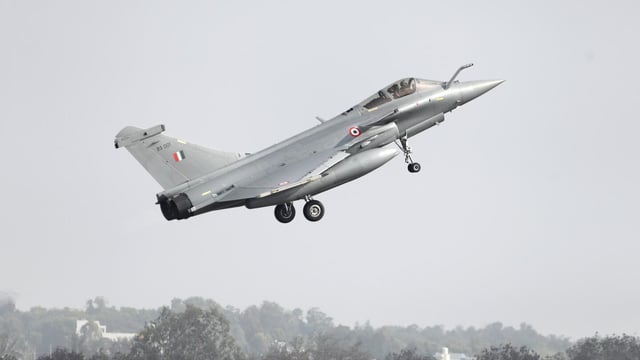By Kristina Vankova
In a startling revelation, French intelligence agencies have accused China of employing its embassies to influence the sale of the Rafale jets, a technologically advanced fighter aircraft manufactured by Dassault Aviation. The assertion has drawn international attention, raising questions about the extent of diplomatic channels being utilized for state interests and potential espionage.
Diplomatic Channels Under Scrutiny
The investigation by France鈥檚 intelligence services suggests that China allegedly leveraged its embassies worldwide to thwart the sales of the Rafale jets. These aircraft are a significant part of France鈥檚 military exports and symbolize advanced aerospace technology.
According to the intelligence reports, Chinese diplomatic channels purportedly sought to influence international buyers through negotiations and strategic communications, thereby favoring defense sales from their own state-run enterprises. This activity is said to not only affect international market dynamics but also potentially undermine French economic interests.
International Implications
The allegations have sent ripples across the global defense industry and diplomatic circles. China鈥檚 ambitious military modernization has long been a subject of international scrutiny, and this latest accusation could complicate its diplomatic relations, especially with countries that are targets for defense sales.
The Rafale jets are considered among the top contenders in multimillion-dollar defense deals due to their advanced systems and versatility. Countries such as India, Egypt, and Qatar are among the recent buyers of these aircraft. Hence, any attempts to influence their purchase decisions have significant geopolitical ramifications.
The Role of Espionage
Espionage remains a critical concern for countries involved in the defense sector. The notion that diplomatic channels could be instrumental in state-sponsored espionage is alarming, further highlighting the opaque intersections between diplomacy and intelligence. State influence on such sales is not merely a matter of economic competition but also involves national security considerations and international power balances.
Reactions from the Involved Parties
China has consistently denied any allegations of misconduct, asserting that its diplomatic endeavors are in adherence to international laws and norms. Nevertheless, the French intelligence reports have prompted calls for more transparent international trade practices and further scrutiny of diplomatic activities related to defense deals.
France, for its part, continues to express concerns over its economic and security interests being jeopardized. This situation poses a dilemma for countries worldwide, especially those facing offers from multiple defense manufacturers and aiming to secure favorable terms and reliable technology in their procurement processes.
The broader international community is watching closely to observe how this situation evolves, as it could have lasting effects on global diplomatic relations and military procurement strategies.
As the international arena grapples with these delicate issues, the discourse surrounding diplomatic influence, military sales, and espionage is likely to intensify, calling for robust policy measures that safeguard sovereign interests in an increasingly interconnected world.
With the defense industry being a cornerstone of economic and technological prowess, the allegations against China highlight the competitive environment for global arms exports, as well as the need for diligent oversight and cooperation among nations to ensure fair practices.
